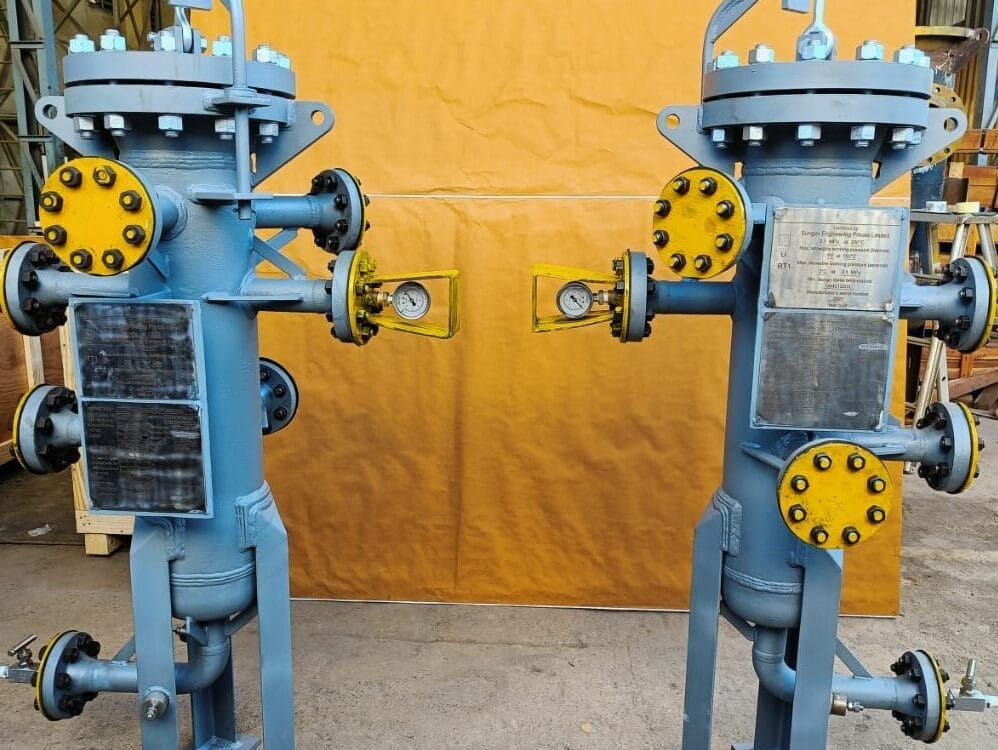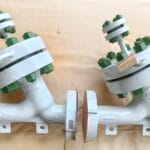When it comes to oil and gas plants, what matters the most is precision. From upstream exploration to downstream refining, each and every process relies on clean, contaminant-free fluids. Even the slightest oversight in filtration can lead to equipment damage, production inefficiency, or even safety risks. That’s where liquid cartridge filters step in as reliable workhorses of fluid purification. These compact yet powerful filters have become indispensable in oil and gas operations. They can handle everything from protecting pipelines to ensuring the purity of diesel used on-site.
In this guide, we will walk you through the fundamentals of liquid cartridge filters, their importance in oil and gas plants, and how they can be compared with other filtration methods.
What Are Liquid Cartridge Filters?
Liquid cartridge filters are depth or surface filters that are designed to capture and retain solid particles, impurities, or contaminants from fluids. Unlike strainers or coarse filters, which primarily remove larger debris, cartridge filters target finer particles. That is often in the micron range.
Each cartridge is housed within a pressure vessel. Fluid passes through the cartridge media, where contaminants are trapped, leaving behind a cleaner fluid stream. The filter element can be made of various materials—cellulose, polypropylene, fiberglass, or even stainless-steel mesh. This mainly depends on the type of fluid and operating conditions.
For oil and gas plants, these filters are used across applications such as:
- Removing solids from process water
- Filtering hydrocarbons like diesel, gasoline, or kerosene
- Protecting sensitive equipment like pumps, valves, and turbines
- Acting as a polishing filter downstream of coalescers and separators
Why Oil and Gas Plants Rely on Liquid Cartridge Filters
Oil and gas processing environments are notoriously demanding. High pressures, corrosive fluids, and complex mixtures of hydrocarbons and water require robust filtration solutions. Let’s explore why liquid cartridge filters are a go-to choice.
Enhanced Equipment Protection
Pumps, compressors, and turbines are extremely sensitive to fine particles. Even microscopic debris can cause wear and tear. This leads to costly downtime. Cartridge filters act as a safeguard by capturing these particles before they reach equipment.
Operational Efficiency
Filtration directly impacts efficiency. A clogged heat exchanger or fouled turbine blade can reduce performance significantly. By ensuring clean process fluids, cartridge filters keep systems running smoothly and reduce energy consumption.
Versatility Across Fluids
From natural gas filter cartridges that ensure pipeline gas purity to diesel fuel filters protecting engines and generators, cartridge systems adapt easily to different applications. Their ability to handle water, hydrocarbons, and even chemical streams makes them highly versatile.
Compact and Scalable Design
Unlike bulky separators or settling tanks, cartridge filters have a compact footprint. Multiple cartridges can be installed in parallel housings, making them suitable for small skid-mounted units as well as large industrial plants.
Types of Liquid Cartridge Filters Used in Oil and Gas
Not all cartridge filters are built alike. The choice depends on the application, type of fluid, and the level of filtration required.
Depth Filters: Designed with thick media that traps particles throughout the entire thickness. Ideal for removing large amounts of contaminants.
Surface Filters: Work like a sieve, trapping particles only on the outer layer. Best for fluids with lower contamination levels.
Pleated Cartridges: Offer a larger filtration surface area within the same footprint. Useful where high flow rates are required without frequent change-outs.
High-Temperature or Metal Cartridges: Designed for hot hydrocarbons and aggressive chemicals. These are often stainless-steel mesh filters, providing both durability and cleanability.
Key Applications in Oil and Gas Plants

Filtration of Produced Water
Produced water often contains sand, silt, oil droplets, and chemicals. Cartridge filters polish this water before it is reused in operations or discharged, ensuring compliance with environmental regulations.
Fuel Handling Systems
Engines, turbines, and generators in plants often run on diesel or similar fuels. Diesel fuel filters remove water and particulate matter to prevent injector clogging, fuel pump wear, and combustion inefficiencies.
Natural Gas Processing
Although natural gas is predominantly methane, it often contains contaminants. Using a natural gas filter cartridge ensures that downstream equipment like compressors and burners receive clean gas, extending service life and reducing maintenance.
Refining and Petrochemical Operations
Cartridge filters are widely used to maintain the purity of solvents, lubricants, and process chemicals. They help avoid catalyst poisoning in reactors, a critical issue in refining and petrochemical production.
Cartridge Filters vs. Other Filtration Technologies
In oil and gas facilities, filters often work in combination. So, how do liquid cartridge filters compare to other options? Let’s look at some.
Strainers: Best for coarse filtration of large debris, but they can’t capture fine particles like cartridge filters.
Coalescing Filters: Excellent for separating liquids from gases or immiscible liquids, but they often need a polishing filter—such as a cartridge—for complete contaminant removal.
Bag Filters: Similar in function but have less surface area and may not offer the same level of efficiency as pleated cartridges.
Maintenance and Lifecycle Considerations
While cartridge filters are reliable, their performance depends heavily on proper maintenance. Some practical tips include:
Regular Monitoring: Differential pressure gauges should be installed to track when filters are clogging.
Scheduled Replacements: Unlike reusable strainers, many cartridge filters are disposable. Changing them at the right intervals prevents flow restrictions.
Material Selection: Choosing cartridges compatible with fluid chemistry avoids premature degradation.
Housing Design: Quick opening closures and easy-access housings reduce downtime during filter change-outs.
Choosing the Right Cartridge Filter
When selecting a liquid cartridge filter, plant engineers must consider:
- Flow rate requirements
- Operating pressure and temperature
- Fluid characteristics (hydrocarbon, water, or chemical)
- Level of filtration needed (micron rating)
- Material compatibility with the fluid
The Sungov Engineering Edge
At Sungov Engineering, we understand that no two oil and gas plants are the same. That’s why our filtration solutions, including liquid cartridge filters, natural gas filter cartridges, and diesel fuel filters, are engineered for customization, durability, and ease of maintenance. With decades of expertise in industrial filtration, we provide not just equipment, but complete solutions tailored to your process challenges.
Oil and gas plants operate in high-stakes environments where efficiency and reliability are non-negotiable. Liquid cartridge filters may look small compared to massive separators and tanks, but their role in protecting equipment, ensuring fluid purity, and maintaining compliance is critical. Whether it’s a diesel fuel filter protecting a generator or a natural gas filter cartridge ensuring clean fuel gas, cartridge filters are the unsung heroes keeping oil and gas operations running safely and efficiently.
By choosing the right filter and maintaining it properly, operators can minimize downtime, extend equipment life, and maximize productivity—a goal every oil and gas plant strives to achieve.
Frequently Asked Questions
Liquid cartridge filters remove fine contaminants from process fluids like water, diesel, and hydrocarbons. They protect pumps, turbines, and heat exchangers from damage, ensuring efficient and safe plant operations.
A natural gas filter cartridge captures dust, rust, and solid impurities from gas streams before they reach compressors or burners. This helps maintain clean gas quality, reduces equipment wear, and improves overall plant reliability.
Diesel fuel filters eliminate water, dirt, and particulate matter from fuel to protect injectors and pumps. In oil and gas facilities, they ensure smooth combustion, higher fuel efficiency, and reduced maintenance downtime.
Liquid cartridge filters offer finer filtration and compact design compared to strainers or bag filters. They provide higher efficiency, easy replacement, and consistent performance for liquids, gases, and fuels.




